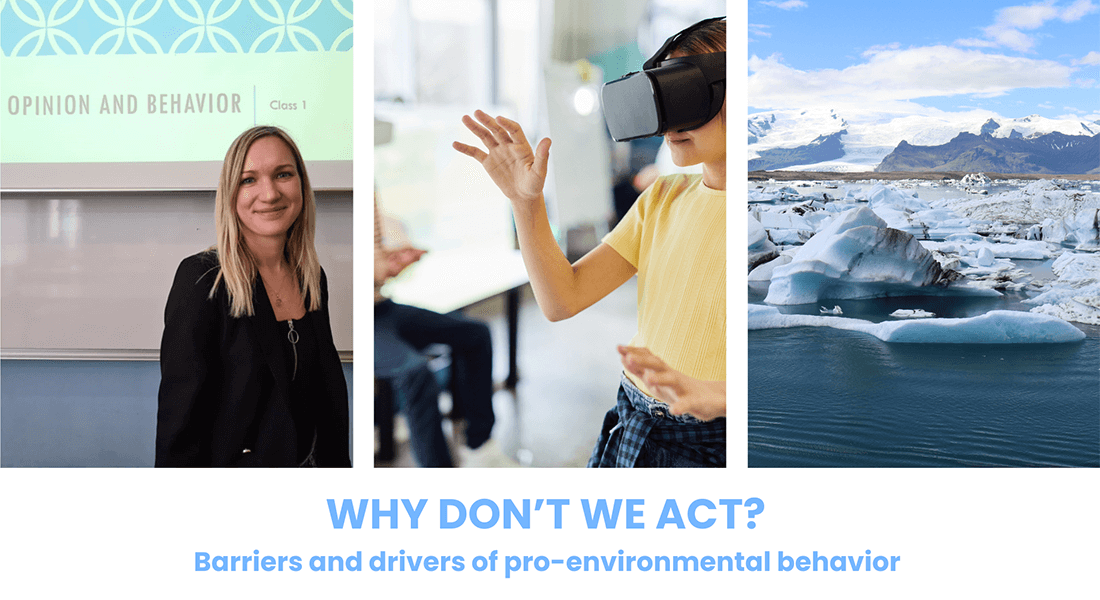Talk: Why don't we act? Barriers and drivers of pro-enviromental behaviour

Are you interested in learning more about how we as psychologists can understand climate-friendly behavior? And what drives or prevents climate-friendly behavior? Join us for an exciting evening in the name of climate.
The Department of Psychology invites you to a talk with postdoc Adéla Plechatá on this very subject. The talk takes place on 26th April in room 2.012.
Program
15:15 - 15:45: Talk by postdoc Adéla Plechatá
15:45 - 16:15: Try a VR simulation on climate-friendly eating habits*
16:15 - 16:30: Discussion and wrap-up
*You can also just watch or answer some discussion questions in groups.
Abstract
Despite widespread awareness of the urgent need to reduce CO2 emissions, individuals often struggle to translate this knowledge into meaningful action. In this talk we will discuss pro-environmental behavior, exploring its drivers and barriers both according to established theories and current research.
We will focus on the pivotal role of perceived efficacy - both self and response - in determining whether individuals engage in environmentally friendly actions. Conventional environmental communication methods often fail to alter efficacy beliefs, as they primarily target analytical processing. In contrast, experiential communication approaches, such as virtual reality, offer promising avenues for effectively addressing efficacy perceptions and promoting pro-environmental behavior.
Moreover, we will explore the consistency of our behavior - whether engaging in one environmentally friendly action predicts similar behavior in other contexts, such as switching to plant-based eating after adopting recycling habits.
We will discuss how virtual reality can serve as a powerful tool for investigating these questions within environmental psychology, enabling researchers to explore fundamental questions about human behavior in ecologically relevant settings.
